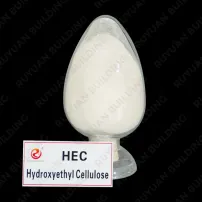Hydroxyethyl Cellulose - HEC Powder

Product description
Hydroxyethyl Cellulose - HEC Powder
In the world of modern industry, Hydroxyethyl Cellulose (HEC) stands as a versatile and indispensable material, finding applications in a wide range of sectors. HEC has earned its reputation for being a reliable solution in petroleum exploitation, coating, construction, medicine and food, textile, papermaking, and polymer polymerization. Its remarkable properties, including thickening, suspension, dispersion, emulsification, adhesion, film formation, water protection, and protective colloid, make it a valuable asset in various fields.
HEC in Building Concrete
As a manufacturer specializing in Hydroxyethyl Cellulose (HEC) powder, we take pride in providing high-quality solutions that play a pivotal role in improving the performance and durability of building concrete. HEC is a versatile and essential additive that brings several benefits to the construction industry, ensuring the success of various projects.
TECHNICAL DATA
Items Indexes
Physical form White to slightly off-white fibrous orgranular powder
Moisture 5.0% Max
pH 6.5-8.5
Viscosity, 2% solu., 20℃ 5000-6000cps 10000-20000cps ≥40000cps
Ash content, % 5.0% Max
Particle Size 96% through 80 mesh
FEATURE
1. Exceptional Solubility and Viscosity
One of the remarkable characteristics of HEC is its ability to dissolve in both hot and cold water, even in high-temperature or boiling conditions, without precipitation. This wide range of solubility and viscosity properties makes it a versatile choice in various applications. Moreover, HEC exhibits non-thermal gelatability, further expanding its utility.
2. Non-Ionic Nature and Compatibility
HEC is inherently non-ionic, which means it doesn't carry an electrical charge. This unique feature allows it to coexist harmoniously with a wide array of other water-soluble polymers, surfactants, and salts. In essence, HEC serves as an excellent thickener in high-concentration dielectric solutions, demonstrating its versatility in diverse industrial settings.
3. Superior Water Retention
When it comes to water retention, HEC outperforms other cellulose derivatives like methyl cellulose. Its water retention capacity is approximately twice as high, making it a valuable choice in applications where moisture regulation is crucial. This property also contributes to better flow control in various processes.
4. Dispersion and Protective Colloid Abilities
While HEC may not have the best dispersion ability compared to other cellulose derivatives like methyl cellulose and hydroxypropyl methyl cellulose, it boasts the strongest protective colloid capability. This means that HEC can effectively prevent the undesirable agglomeration of particles in suspensions, ensuring stable and consistent results in numerous applications.

